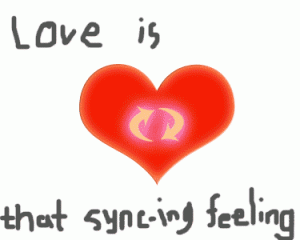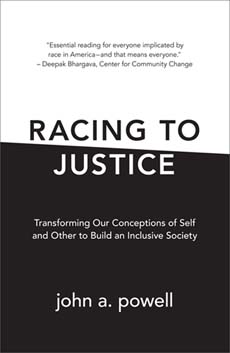Networks: A Love Story
July 8, 2014 2 Comments
Over the past 8 years at IISC I have seen and experienced some interesting progressions. When I first joined the organization, in our Facilitative Leadership trainings, we talked about the “interior condition” of effective collaborative leaders. At the core we mentioned that these leaders and change agents embraced an ethic of “service, authenticity and respect.” Then we made the bold move of changing “respect,” which came across to many as a bit weak, to LOVE. For the first couple of years after making this switch, when I asked “What’s love got to do with it?” with respect to effective leadership and work for social change, there were often uncomfortable silences. Some participants would ultimately want to reframe love as “respect” or “passion.”
Then in 2009 I started noticing a change. More heads nodded in rooms when I mentioned the “L-word.” Less nervous laughter and shifting in seats. In one particularly striking instance, during a training with health care professionals in Maine, a senior and very respected physician responded,
“What’s love got to do with it? Everything! Beyond my technical skills, I am effective in so far as I am able to really see my patients, students, and colleagues, to make them feel seen for who they are.”
Since then, I have been drawn to and often use the work of biologist and philosopher Humberto Maturana when talking about love. Maturana has written that love is “seeing the other as a legitimate other,” and that it can make a living system more intelligent. While this might lack a certain upfront spiritual and/or emotional punch, I’ve found that if you sit with what it means to embrace the legitimacy of others – their being, experiences, and perspectives – it is quite a profound and challenging undertaking. And indications are that it can yield amazing benefits.
Psychologist Barbara Fredrickson has devoted much of her research to the resilience-inspiring and liberating impacts of love. An emotions scientist, Fredrickson has clinically tracked the capacity of love – “moments of warmth, connection and openness to others” – to open people up:
“Your outlook quite literally expands as you come under the influence of any of several positive emotions. With this momentarily broadened, more encompassing mindset, you become more flexible, attuned to others, creative, and wise. Over time, you also become more resourceful.”
Fredrickson and her colleagues at UNC’s PEPLab have even noted the ability of love and other positive emotions to eliminate the phenomenon of “own race bias.” In other words, love can liberate people from some implicit biases and self-imposed boundaries. In an increasingly interconnected and inequitable world, this bears great promise and need, which is why at IISC we uphold three lenses for our collaborative capacity building work: networks, power/equity/inclusion, and love as a force for social transformation.

In 2009, writer and activist, Michael Edwards said in a talk entitled “Love and Networks,”
“Only by operating from the space where we are joined together in some deeper sense are we likely to find common ground in facing up to the collective problems that confront us, with some of our differences intact.”
We are seeing the truth of these words in much of our network building work, including my own consulting with Food Solutions New England (FSNE), a regional network and strategy development effort supporting more just and sustainable food systems. While there is certainly much to be done technically to retool structures and infrastructure to achieve the 2060 Vision of the region producing at least 50% of what is consumed here, considerable work also lies at profound personal and interpersonal levels. In meetings of the broadly representative FSNE Network Team, and in larger convenings, the emphasis is always on “building connectivity” through sharing stories and inspirational offerings of various kinds, learning and spending informal time together.
The results have been very encouraging, including new and in some cases unusual relationships and partnerships forming across various boundaries – geographic, cultural, sectoral – and instances of risk-taking and people having one another’s back. We leaned heavily on this trust very recently at the New England Food Summit during which we explored in plenary gatherings of more than 150 representatives from six states, the reality of racial inequities in our food systems. The ripples of this successfully held conversation are already being felt in states and communities across the region including commitments to continue the conversation locally.
What all of this is adding up to in my eyes is the recognition that our collective ability to really see and be with one another across lines of difference is absolutely critical to our long-term resilience and thriving. I closed the New England Food Summit with a couple of my favorite quotes that capture the essence of what love has to do with the work of social change. The first echo is found in the words of Mary Parker Follett going back nearly 100 years:
“Democracy is an infinitely including spirit. We have an instinct for democracy because we have an instinct for wholeness; we get wholeness only through reciprocal relations, through infinitely expanding reciprocal relations.”
And more recently from Professor john a. powell:
“There is a need for an alternative vision, a beloved community where being connected to the other is seen as the foundation of a healthy self, not its destruction, and where the racial other is seen not as the infinite other, but rather as the other that is always and already a part of us.”
May it be so.



2 Comments
Love this post, Curtis, particularly the evolution and impact you’ve shared of this powerful notion. Your timing could also not be better considering the work Gibrán, Danielle and I are doing internally on IISC’s continual learning and thinking about love and social change. Thank you!